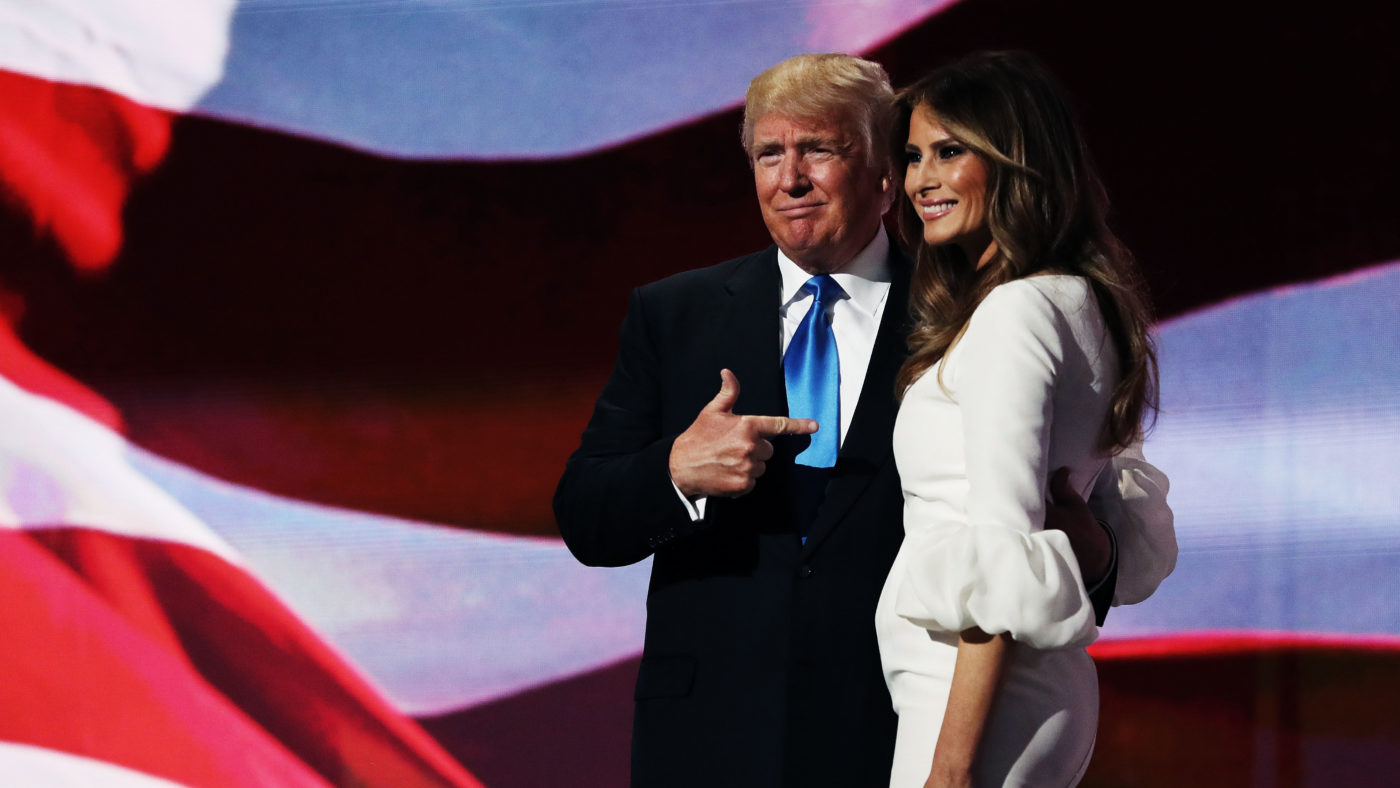Donald Trump has not had the friendliest relationship with the media: he has repeatedly blacklisted publications whose reporting he objects to, and has promised to reform America’s libel laws to make it easier for people to sue over negative stories.
But this hostility to the press is not confined to the candidate himself. Trump’s wife Melania is suing the Daily Mail, along with a US blogger, for $150 million for suggesting that she had previously worked as an escort – something she categorically denies. The Mail retracted the article and said it had not intended to suggest such a thing. But Mrs Trump’s lawyer, Charles Harder, said that the lawsuit would still continue.
Even for a media giant like the Daily Mail, $150 million is a huge sum to have to deal with. Enough to make any company twice about writing another critical story about Donald Trump or any member of his family. Indeed, in an interview with the Guardian, the Trump biographer Wayne Barrett (who has previously also been threatened with legal action by his subject) said he believed that this lawsuit was intended primarily as “a threat to other reporters, publishers, news organisations”.
If that is indeed the motive, it would be following something of a trend. The recent demise of the media company Gawker, and the bankrupting of its founder Nick Denton, came about after it published footage from a sex tape involving the wrestler Hulk Hogan – who was represented by, among others, Charles Harder. Midway through the saga, it was revealed that Hogan’s legal work was being funded by Silicon Valley billionaire Peter Thiel.
Thiel is a fascinating figure, who has created and invested in some of the greatest tech companies of all time. He founded PayPal and was an early investor in Facebook. His Palantir data mining software was thought to have been used in the hunt for Osama Bin Laden. He is also a supporter of Trump, and appeared on stage at the recent Republican National Convention. And, we now know, this highly successful venture capitalist ended up waging a secretive guerilla war against Gawker, helping to fund various lawsuits against the firm.
Since his involvement was revealed, Thiel has been unapologetic about his actions. He told the New York Times: “It’s less about revenge and more about specific deterrence. I saw Gawker pioneer a unique and incredibly damaging way of getting attention by bullying people even when there was no connection with the public interest.”
It is that phrase – “specific deterrence” – that feels so alarming. It also has echoes of the sentiments attributed to Trump by his biographer.
The truth is that the courts are there to enforce laws such as libel that rightly hold the press to account for inaccurate and defamatory reporting. They are not there as the plaything of the rich and famous to bully the press into submission.
Why the years of plotting by Thiel – not to mention the financial cost he took on? Partly because Gawker outed him with a now infamous piece headlined “Peter Thiel is totally gay, people.” The headline is a typically snarky Gawkerish take on a fact that was apparently widely known to Thiel’s circle in Silicon Valley; Thiel said that its becoming public knowledge risked his relationships with investors in places such as Saudi Arabia. He also objected to the intrusive and gossipy tone of Gawker’s tech coverage more generally, accusing its Valleywag blog of being “the Silicon Valley equivalent of al-Qaeda” and claiming that the company’s reporting “ruined people’s lives for no reason”.
The lurid details about the celebrities involved might seem somewhat laughable or irrelevant – although it must doubtless be upsetting for, say, Mrs Trump to find herself the subject of false and embarrassing claims about her past. But the implications of these cases are deeply concerning for those of us who believe in free speech and a free press – and who look askance at the spectacle of a billionaire bankrupting a media firm because it wrote things he didn’t like, or a presidential candidate’s wife suing another outlet for a nine-figure sum.
Whether it is political figures or technology barons – the powerful pioneers of the new industrial revolution – these people matter, and they deserve to be scrutinised. For just as worrying as specific stories being stopped is the potential chilling effect if such very rich subjects resort to the courts on a routine basis in order to deter coverage they dislike.
In 2012, for example, the Republican donor Frank VanderSloot sued the progressive website Mother Jones. The process only concluded (with a victory for Mother Jones) in 2015. During such proceedings, litigation can hover like a guillotine waiting to drop.
We may not always like the results, but a raucous and, yes, annoying and embarrassing media is a key pillar of a free society that those of us on the liberal centre-right should passionately defend.


